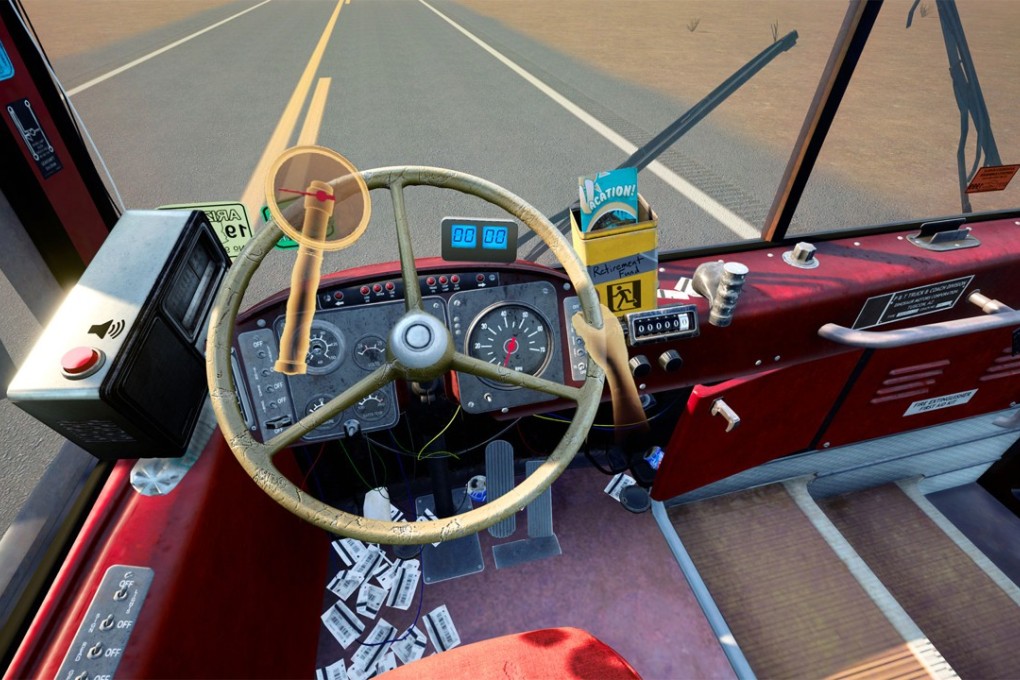‘Worst video game ever created’ gets a sequel: Desert Bus VR
The first game was a tongue-in-cheek response to societies’ obsession with violent video games, and its equally mundane sequel is sure to amuse fans – with a bonus return trip available for those able to drive eight hours straight

As in the original game, players pilot a bus through the desert stretching between those two American cities. The sequel adds updated graphics and a multiplayer version, in which other players can ride as passengers on the bus and “sit, wave, and even throw wads of paper at the driver”, according to Gearbox Software.
If all this sounds ridiculous, that’s on purpose. Desert Bus was less a game and more of a social critique of the argument that violent video games lead to real-world violence. Over the years, it became an object of fascination for gamers. And a comedy troupe even embraced it as a means of raising money for charity.
10 most violent video games of 2017 and child-friendly alternatives to keep the kids happy – and safe
Entertainers Penn Jillette and his partner, Raymond Teller, best known by the stage name Penn & Teller, created the game in 1995 with the help of former Saturday Night Live writer Eddie Gorodetsky. Their non-violent game was intended to “work as a satire against the anti-video-game lobby”, wrote The New Yorker’s Simon Parkin.
Violent video games have long found themselves in the cross hairs of some activists and politicians. For instance, games such as Doom, Night Trap and Mortal Kombat were the focus of a joint congressional hearing in December 1993.
Video-game publishers were asked “whether they were in fact peddling inappropriate material to children”, Wired reported. A member of an advocacy group that monitors violence on television said that such games were “training early killers”, the magazine reported.

A few years later, multiple lawsuits were filed claiming violent video games inspired real-life violence, according to the National Coalition Against Censorship.